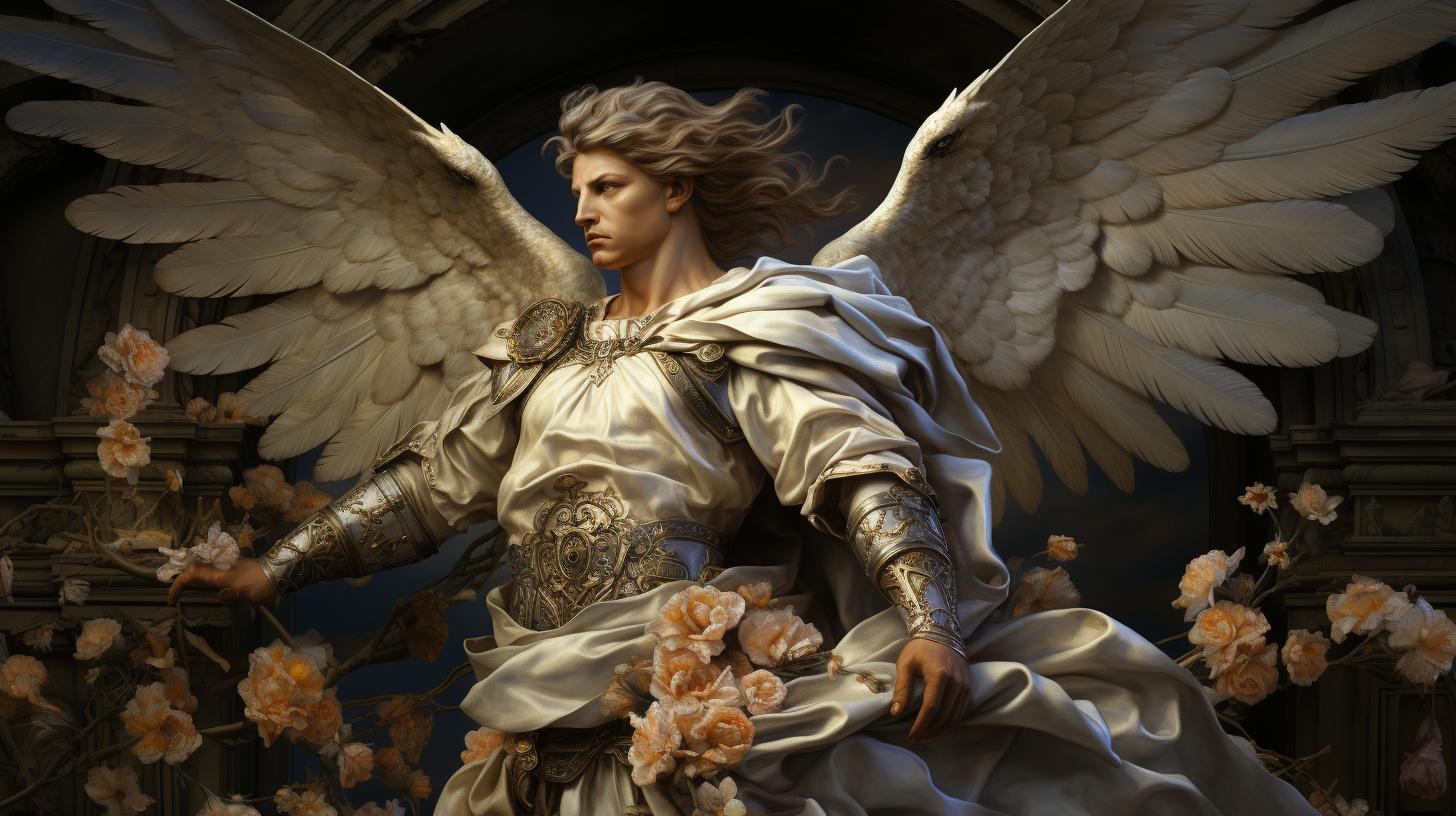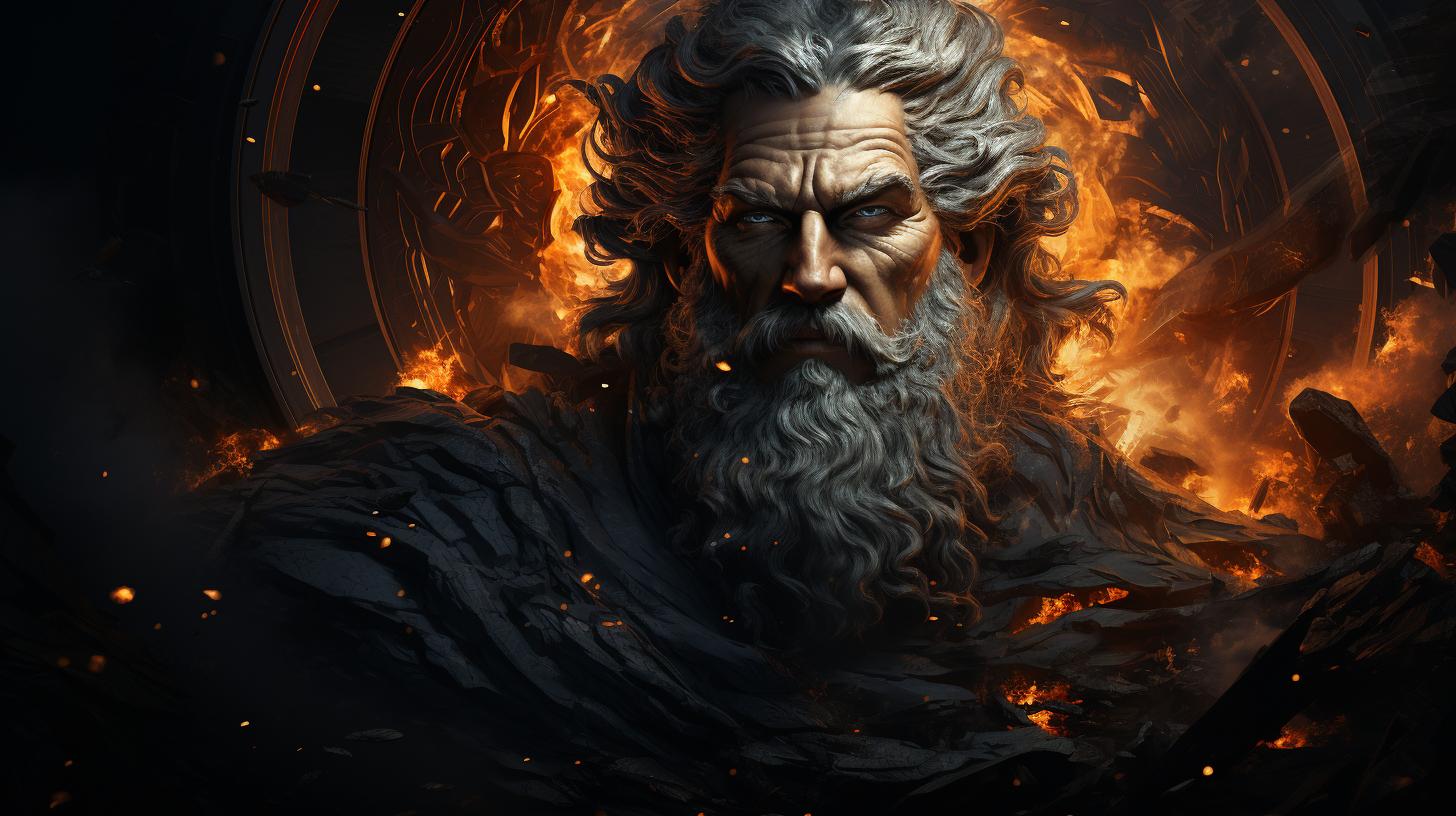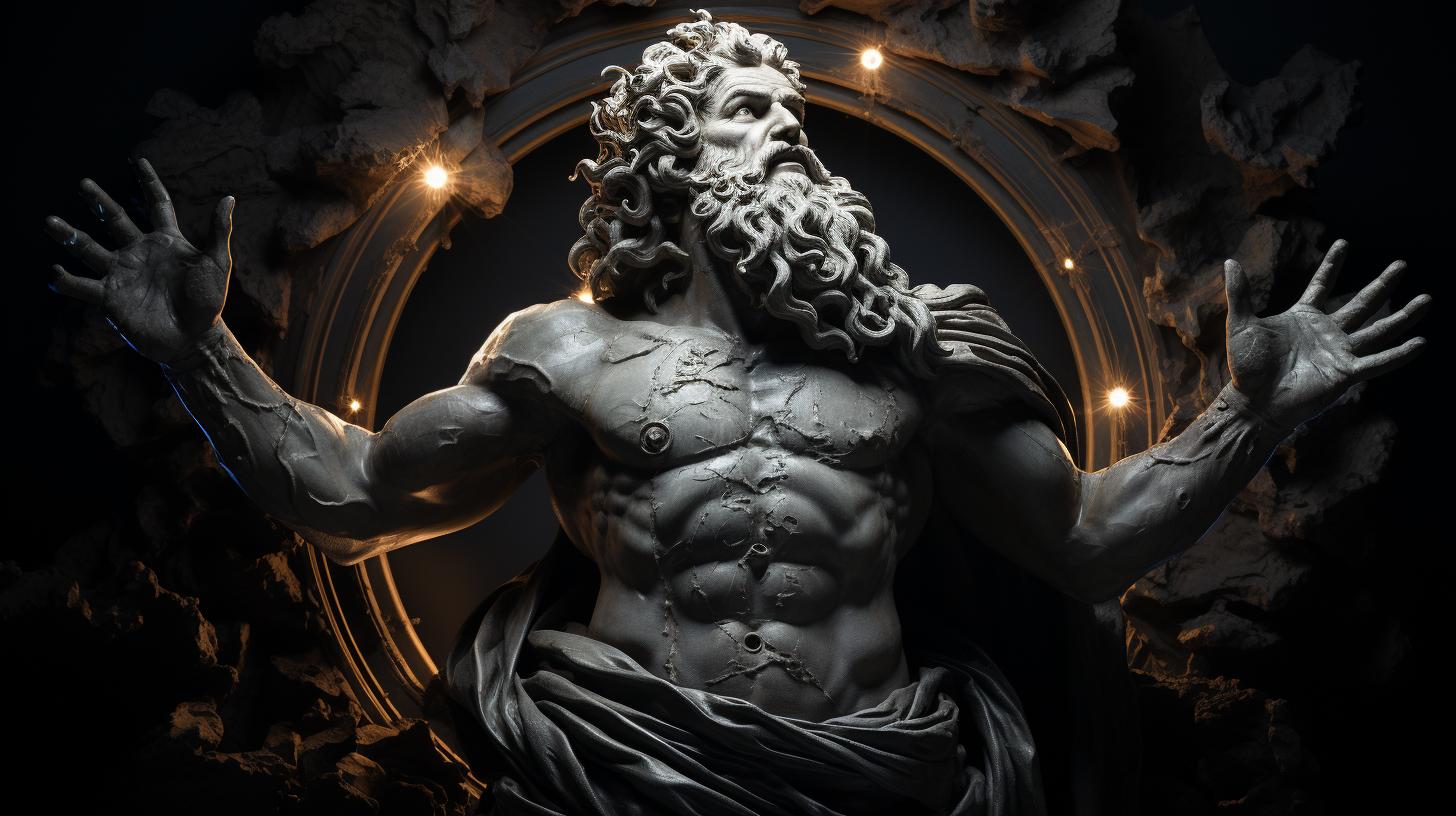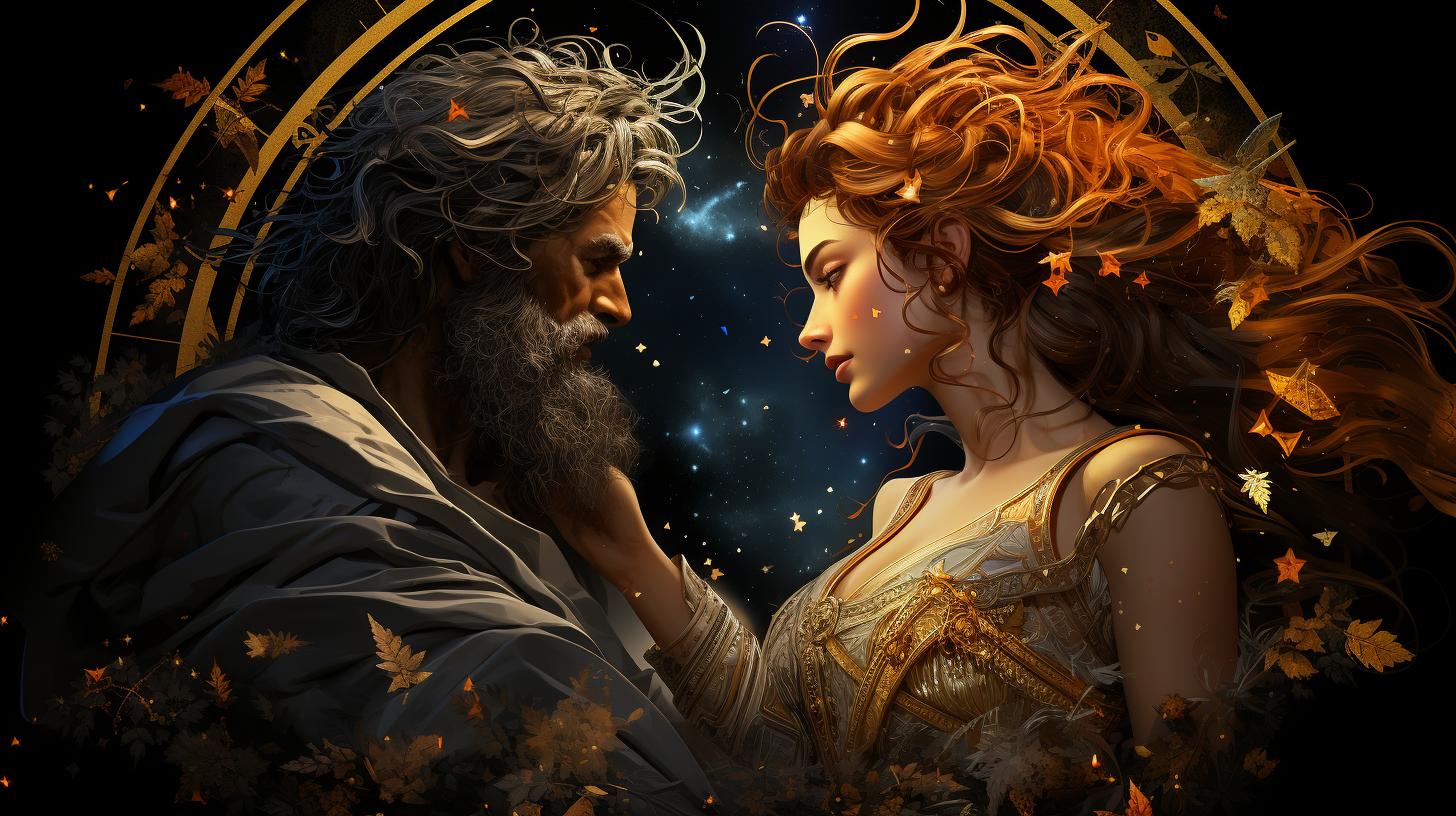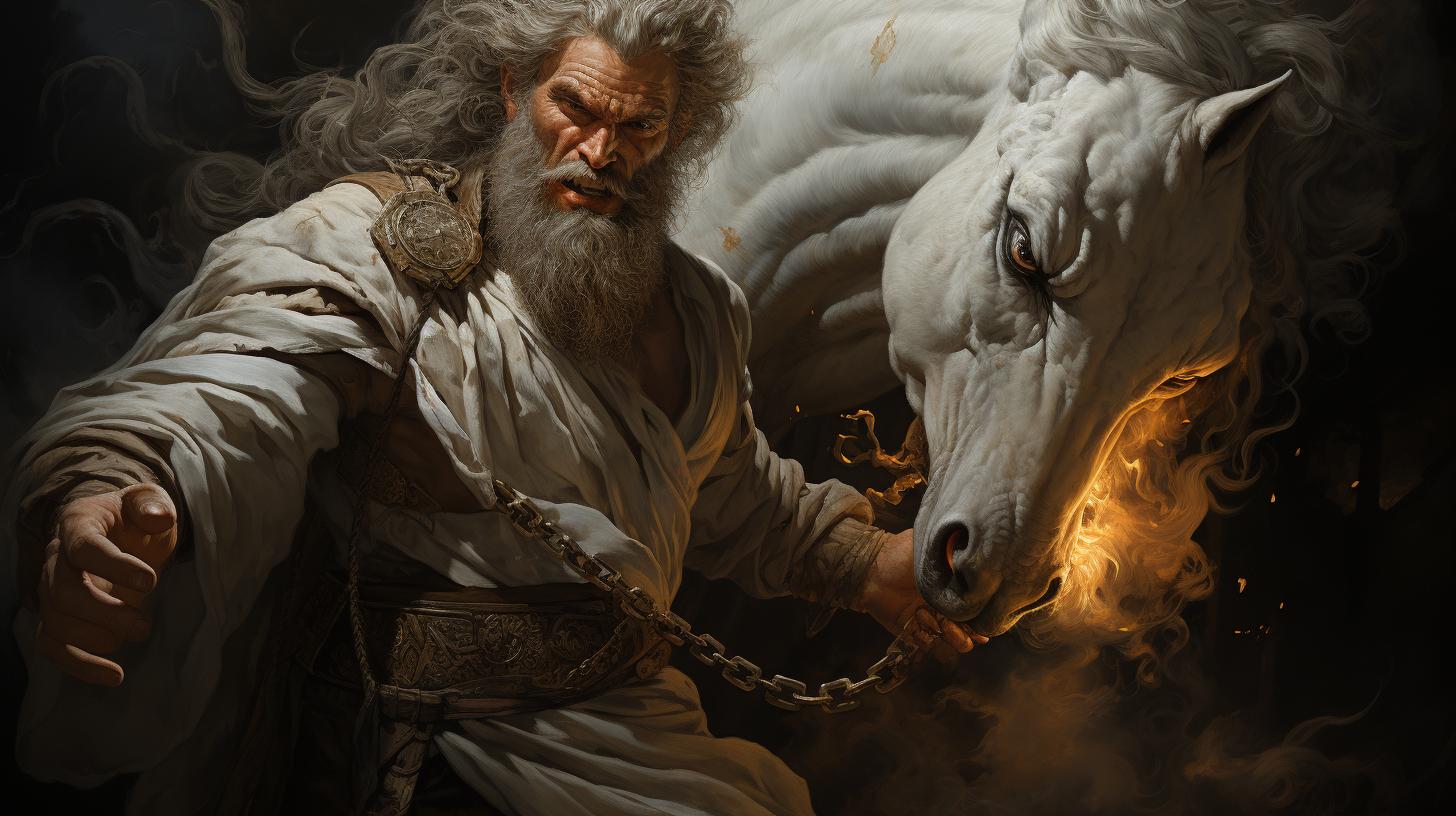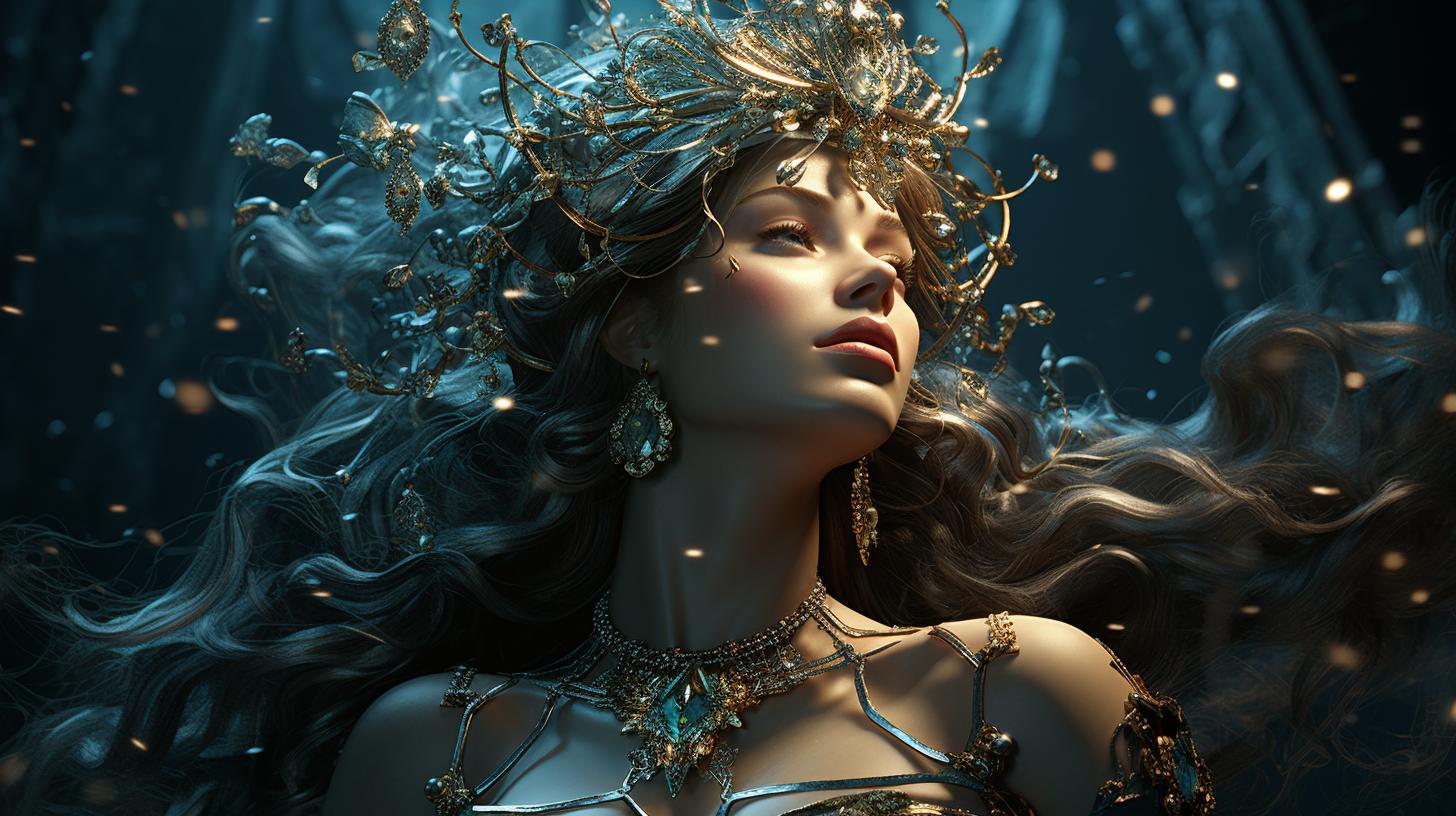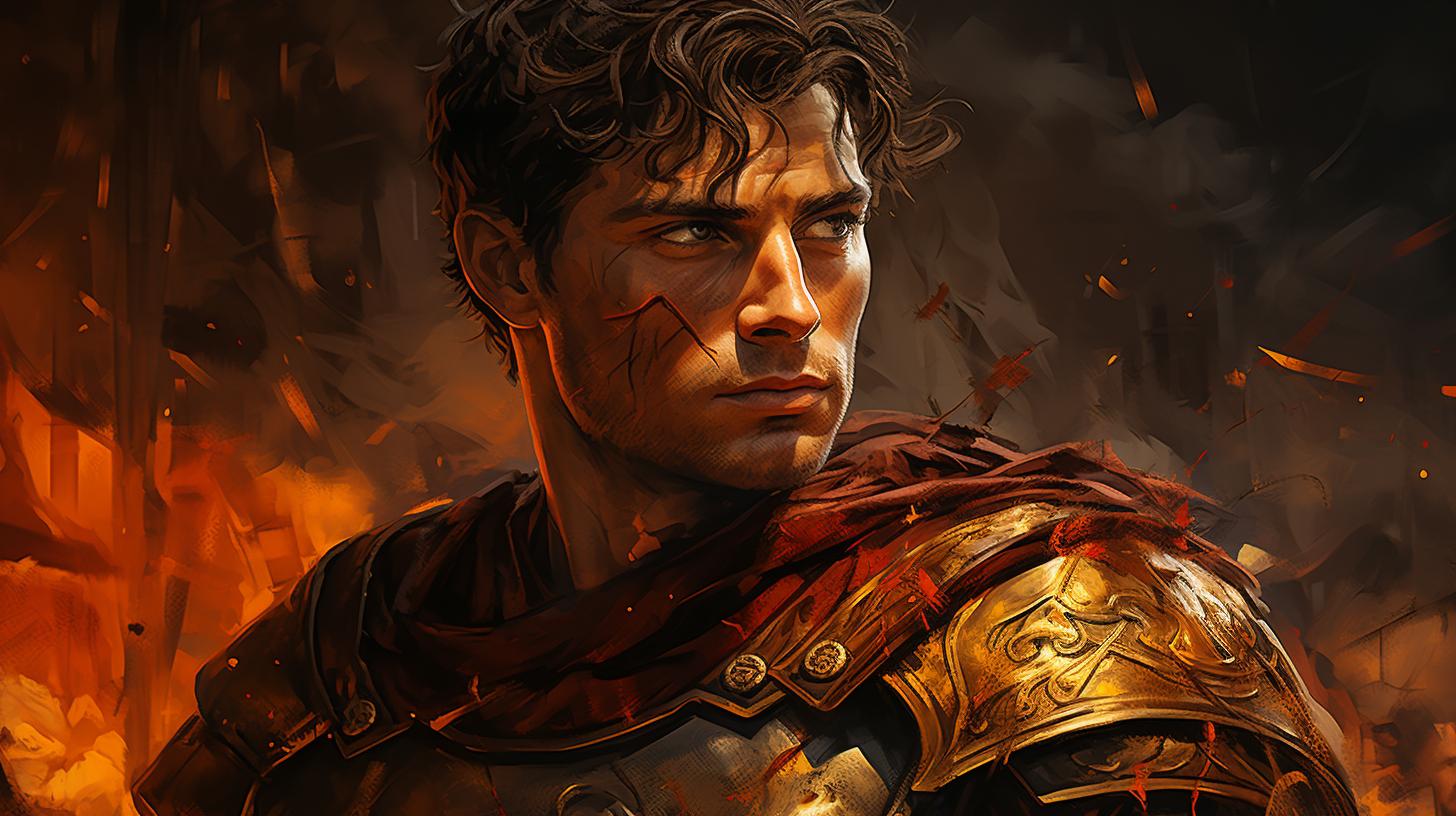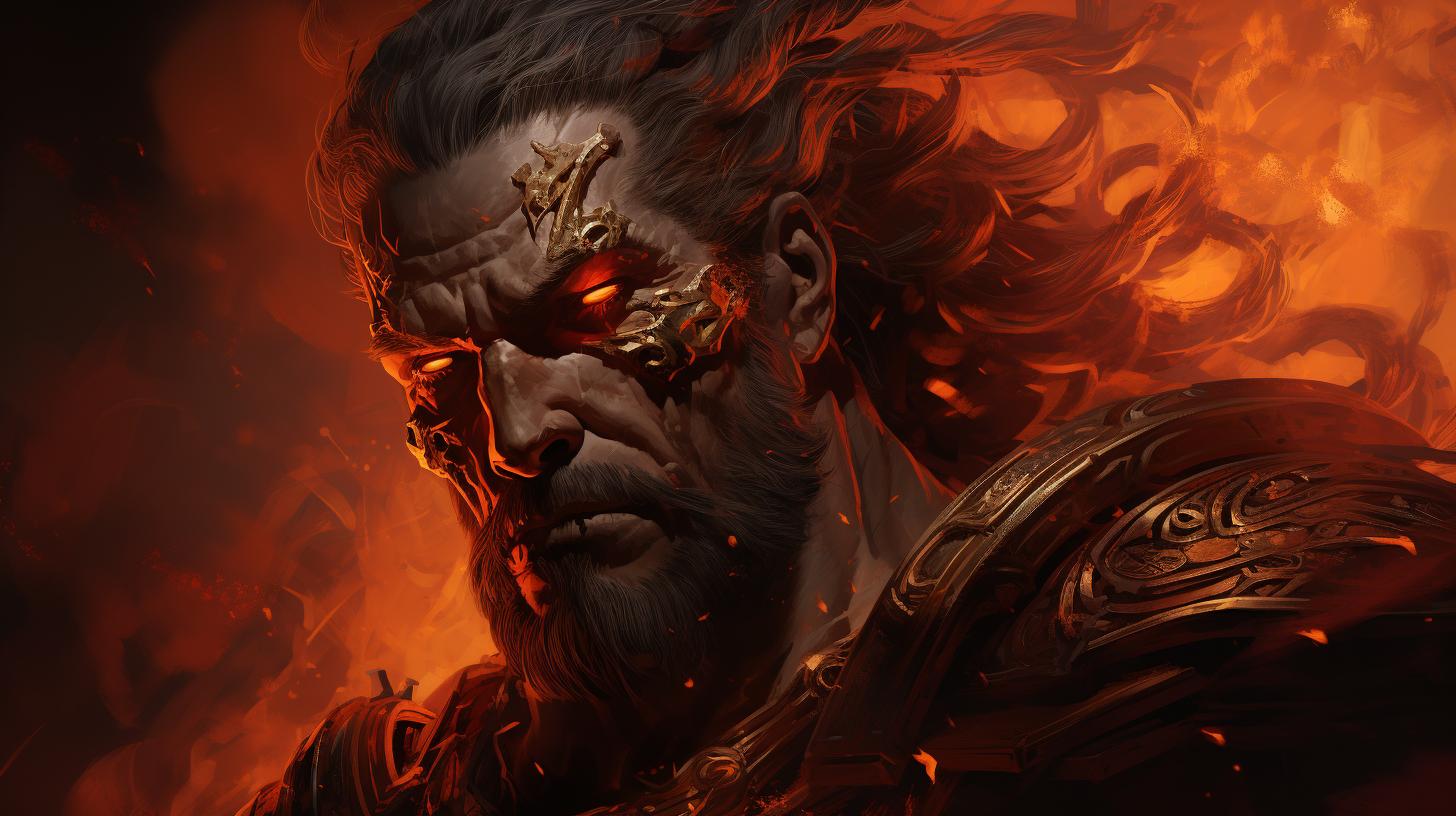Bellerophon: Exploring the Epic Adventures of Greek Mythology
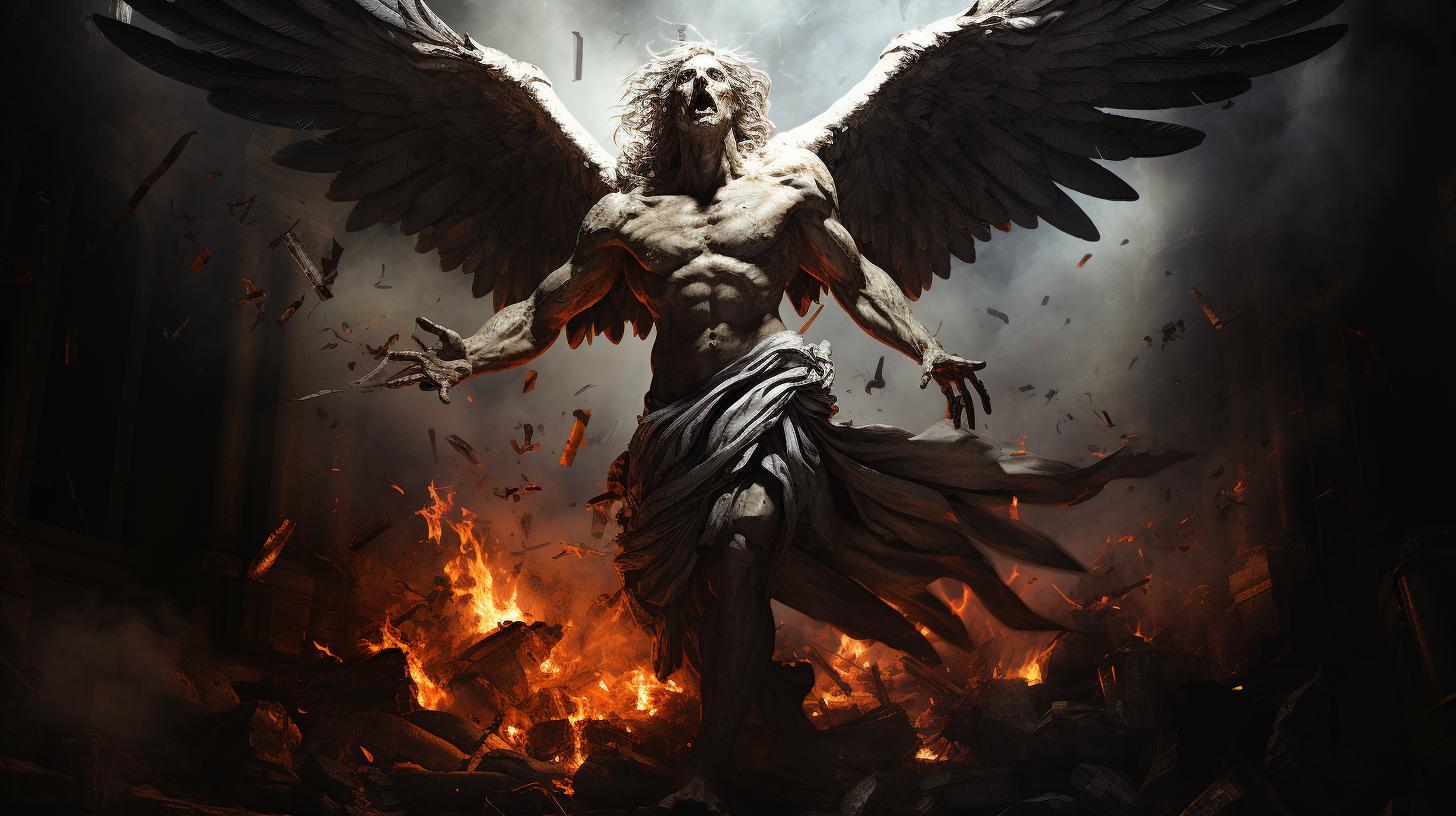
Bellerophon, a Corinthian hero from Greek mythology, is known for his incredible feats and connections with legendary creatures. With the help of Athena, he tamed and rode the winged horse Pegasus, leading him to confront and slay the fearsome Chimera. Bellerophon’s triumphs extended to defeating the Solymoi tribe and the Amazons, earning him acclaim.
However, his hubris led to his downfall when he tried to ascend to Mount Olympus. As a cautionary tale, Bellerophon’s story serves as a symbol of heroism, ambition, and the consequences of challenging the gods.
It has inspired art and literature throughout history.
Bellerophon: Origin and Parentage
In the realm of Greek mythology, Bellerophon emerges as a remarkable hero hailing from Corinth. His lineage, however, is a subject of debate among various sources. While some suggest that he is the son of Poseidon and Eurynome, others argue that his father is Glaucus, the Corinthian king and son of Sisyphus.
The conflicting accounts surrounding Bellerophon’s parentage only add to the mystery and intrigue of his origin story. Nonetheless, they all agree on one thing: Bellerophon possesses an extraordinary lineage, with connections to both gods and mortal rulers.
As the son of Poseidon or Glaucus, Bellerophon inherits a powerful and illustrious heritage. The influence of his divine parentage is apparent in his incredible feats and his association with legendary creatures.
The narrative of Bellerophon’s adventures and accomplishments is deeply intertwined with his divine lineage. Whether he is the son of Poseidon or Glaucus, the very essence of his character is shaped by his divine blood, imbuing him with unparalleled courage, strength, and tenacity.
The Mythical Beasts: Pegasus and the Chimera
In the realm of Greek mythology, two legendary creatures stand out: Pegasus and the Chimera. These extraordinary beings played vital roles in the adventures of the Corinthian hero, Bellerophon.
Pegasus: The Winged Horse
Pegasus, a magnificent winged horse, was gifted to Bellerophon by his father Poseidon. With its majestic wings and divine bloodline, Pegasus possessed unmatched speed and grace, becoming a symbol of inspiration and heroism.
Bellerophon’s remarkable feat was not only taming Pegasus but also riding the mythical creature. Guided by Athena, the goddess of wisdom, Bellerophon acquired a magical bridle that granted him control over the horse.
This newfound ability proved instrumental in his heroic endeavors.
The Chimera: A Fire-Breathing Monster
The Chimera, an abominable creature of Greek mythology, possessed a lion’s head, a goat’s body, and a serpent’s tail. It was known for its terrifying ability to breathe fire, striking fear into the hearts of all who encountered it.
Riding upon the back of Pegasus, Bellerophon fearlessly confronted the Chimera. Armed with his trusty bow and arrows, he launched a relentless assault, skillfully dodging the beast’s fiery breath.
With great precision, Bellerophon aimed his final attack, impaling the Chimera with a spear and bringing an end to its reign of terror.
The triumph over such a fearsome monster solidified Bellerophon’s reputation as a legendary hero, showcasing his courage, resourcefulness, and unwavering determination.
This epic clash with the Chimera would forever be etched in the annals of Greek mythology, inspiring future generations with its tale of bravery and the triumph of good over evil.
Bellerophon’s Heroic Exploits
Bellerophon, the Corinthian hero of Greek mythology, embarked on numerous daring adventures that showcased his bravery and prowess. His exceptional feats are the stuff of legends, exemplifying his heroic nature.
Taming and Riding Pegasus
One of Bellerophon’s most famous exploits was his mastery over the magnificent winged horse, Pegasus. Assisted by the goddess Athena, who presented him with a magical bridle, Bellerophon successfully captured and tamed the majestic steed.
This extraordinary feat allowed him to ride Pegasus, granting him unparalleled mobility and an advantage over his adversaries.
Confronting and Slaying the Chimera
Bellerophon’s valor was put to the test when he confronted the fearsome Chimera, a ferocious creature with the head of a lion, the body of a goat, and the tail of a serpent.
Mounted on his trusted Pegasus, Bellerophon fearlessly faced the monstrous Chimera, unleashing a barrage of arrows. With his well-aimed strike, he managed to pierce the heart of the mythical beast, bringing about its demise.
Triumph over the Solymoi Tribe and Amazons
Not content with his earlier victories, Bellerophon further proved his mettle by triumphing over formidable foes. He vanquished the Solymoi tribe, known for their fierce warrior culture, displaying his tactical prowess and physical strength.
Additionally, he successfully defeated the mighty Amazons, a society of warrior women, securing his reputation as a legendary hero.
Bellerophon’s heroic exploits, including his mastery of Pegasus, his defeat of the Chimera, and his triumphs over the Solymoi tribe and Amazons, solidified his status as a hero of great renown.
His courage and determination continue to inspire and captivate audiences, making him an enduring figure in Greek mythology.
The Downfall of Bellerophon
As Bellerophon’s heroic exploits grew, so did his arrogance and ambition. Blinded by his successes, he dared to challenge the boundaries set by the gods themselves.
Bellerophon’s Hubris and Ascent to Mount Olympus
Fueled by his accomplishments, Bellerophon’s hubris led him to believe he was worthy of divine immortality.
He hatched a plan to ascend to Mount Olympus, the realm of the gods, on the back of his faithful companion, Pegasus.
Driven by boundless ambition, Bellerophon sought to join the gods and obtain a place among them.
He believed he had achieved a status above that of mere mortals and was ready to claim his rightful place in Olympus.
Zeus’ Punishment: The Fall from Pegasus
Zeus, the ruler of the gods, saw through Bellerophon’s arrogance and pride. Outraged by his audacity, Zeus devised a punishment for the hero. He sent a gadfly to sting Pegasus during their ascent to Olympus.
As the gadfly relentlessly tormented Pegasus, the winged horse bucked and plunged through the skies. Bellerophon, caught off guard and unable to hold on, was thrown from his beloved steed and hurtled back to the mortal realm.
Exile and Rejection by Gods and Men
The fall from Olympus marked Bellerophon’s ultimate downfall. Exiled from the gods’ realm, he found himself despised by both divine beings and mortal men. He became a solitary figure, rejected by the very entities he had dared to challenge.
Once celebrated as a hero, Bellerophon now wandered the earth, a fallen figure bearing the weight of his hubris. He served as a cautionary tale, reminding humanity of the consequences of overreaching and displaying disrespect towards the gods.
Despite his extraordinary feats, Bellerophon’s excessive pride ultimately brought about his own destruction. His story serves as an enduring reminder that even heroes must possess humility and respect for the powers that govern the realms of gods and men.
Bellerophon Greek Mythology in Art and Literature
The captivating story of Bellerophon in Greek mythology has left its mark on the art and literary world throughout history. Artists and writers have been inspired by the heroic exploits and cautionary tale of this Corinthian hero.
Let us delve into how Bellerophon’s story has been depicted in ancient artworks and how it has influenced playwrights and authors across different eras.
Depictions in Ancient Artworks
Ancient artists found great fascination in portraying the epic adventures of Bellerophon. In various sculptures, vases, and murals, Bellerophon is depicted as a courageous warrior riding the magnificent Pegasus, the winged horse.
These artworks often showcase the hero in fierce battle with the monstrous Chimera, capturing the intensity of their encounter. The representations of Bellerophon’s triumphs against mythical beasts stand as testaments to his heroic status in Greek mythology.
Influence on Playwrights and Authors Throughout History
Bellerophon’s tale of bravery and downfall has intrigued playwrights and authors for centuries. In ancient Greek drama, renowned playwrights like Euripides and Sophocles incorporated Bellerophon’s story into their works. His adventures served as a source of inspiration for epic poems, such as Homer’s Iliad and Odyssey, where his feats are honored.
The influence of Bellerophon extends beyond ancient times, with notable writers like John Milton and William Shakespeare drawing upon his character and moral lessons in their works.
The enduring power of Bellerophon’s story lies in its ability to captivate the imaginations of artists and writers alike.
Through their creative interpretations, the legend of Bellerophon continues to be celebrated and contemplated, showcasing the timeless relevance and universal appeal of Greek mythology.
Bellerophon’s Legacy: Symbolism and Meaning
Bellerophon’s tale in Greek mythology holds profound symbolism and teaches important lessons about heroism and hubris. This section explores the deeper meaning behind Bellerophon’s story and his significance within the context of Greek mythology.
Lessons on Heroism and Hubris
Bellerophon’s journey is a cautionary tale, reminding us of the dangers of excessive pride and arrogance. His initial triumphs over mythical creatures and tribes demonstrate the extraordinary potential of mortal heroes.
However, his downfall serves as a vivid reminder that even the most heroic figures must maintain humility and respect for the gods.
The lessons derived from Bellerophon’s story emphasize the importance of balance and self-awareness in the pursuit of greatness.
It warns against exceeding the boundaries set by the divine, underlining how hubris can lead to tragic consequences and downfall.
Bellerophon in the Context of Greek Mythology
Within the vast tapestry of Greek mythology, Bellerophon occupies a unique place. He embodies the ambitious nature of mortal heroes who strive for immortality and divine recognition. Bellerophon’s connection with Pegasus, the winged horse, exemplifies the transcendence of earthly limitations and the potential for mortals to achieve greatness.
Bellerophon’s story also sheds light on the complex relationship between humans and gods in Greek mythology. His arrogance and aspiration to join the gods on Mount Olympus highlights the distinct boundaries that separate mortals from immortals.
Zeus’ punishment serves as a reminder that the gods are not to be challenged or defied.
Furthermore, Bellerophon’s legacy reflects the eternal struggle between human aspirations and divine authority, serving as a narrative of caution and a reminder of the consequences of crossing such boundaries.
- Bellerophon’s tale symbolizes the fleeting nature of mortal glory in the face of divine power.
- His story warns individuals against reckless ambition and the desire to surpass their mortal limitations.
- The fall from grace experienced by Bellerophon cautions against the perils of pride and the importance of humility.
- His adventures and subsequent exile showcase the inevitable consequences of challenging the divine order.
- Through various interpretations in art and literature, Bellerophon’s legacy has continued to inspire discussions on ambition, heroism, and the fragile balance between mortals and gods.
Overall, Bellerophon’s story serves as a timeless reminder of the complexities and limitations inherent in the human pursuit of greatness.
.

